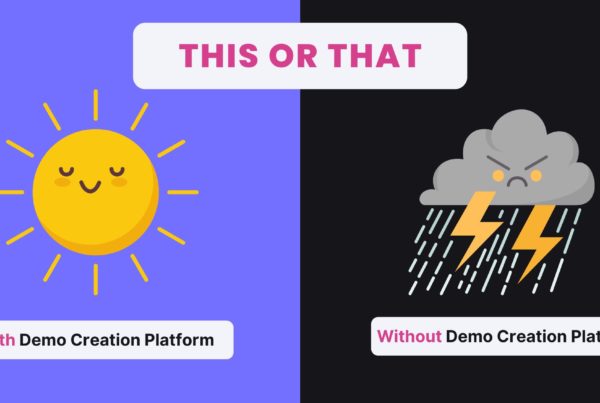The best brands are built on trust. It’s how the most iconic brands have established long-time loyalty with their customers – by using trust as one of their key brand pillars. I had the delightful experience of talking to Daniel Barber, who’s currently CEO and co-founder at DataGrail, on a recent episode of the Demo Diaries podcast about how thoughtfully approaching privacy and transparency helps build trust with B2B customers.
Meet Daniel
He grew up in Australia, moved to the US after school, lived in Europe for a while, and did his MBA in Japan – he’s really a man of the world. After business school, he found himself in San Francisco and working at Responsys, which served some of the biggest brands on the planet using tremendous amounts of data for email marketing. He went on to work for other tracking and analytics companies like Datanyze, Outreach, and Chorus.
In 2018, he co-founded DataGrail after seeing all the challenges businesses today face with the personal info they have and the apps they use – there’s so much out there they might not even know what they have or every app they’re using. DataGrail, which just secured Series B funding, is a platform that helps businesses use automated data mapping, manage consumer data requests, and unify email preferences so their privacy and data policies are all in compliance.
Why Trust is Everything
(A quick disclaimer – while we discussed legal issues, none of this is legal advice! Check with your lawyers before making any changes, please!)
With new privacy regulations like the GDPR in the EU and new laws in California and Virginia, businesses have lots of challenges when it comes to privacy compliance. And in addition to not falling afoul of the law, it’s also important to comply to build trust with customers.
After all, the sales, marketing, and customer success functions all rely on trust to get their jobs done. And trust begins with transparency. There’s a big move towards transparency in the software market in general – you can see how products will function before you buy them, find reviews from real users, and even learn about the working environment before you take a job.
And for companies in the tech vertical in particular, your business will grow until you can’t track all the apps you’re using. Since 2017, research has found that the apps a tech company will use has gone up 56% (a stunning 155 apps per company on average!). Tech companies need to centralize their privacy and security efforts, and they need help doing that – it’s a highly complex task.
Trust also plays a big part in privacy and security efforts, not just legal compliance. When a potential customer asks your sales rep a question like, “How did you get my number?”, there’s a legal obligation to answer it, but it’s also just a fair request for a prospect to make. Your business needs to have a method to facilitate that transparency or your teams will be put in a tough spot.
How This Applies to Demos
When SaaS companies are doing demos for prospects, they don’t always think about privacy issues – but they’re really quite relevant. It’s problematic (and sometimes against the law) to show the data of another customer during a demo. So how can you still show relevant and compelling information during a demo? Using a product like Reprise can help – you won’t need to demo live info when you’re trying to sell.
Another thing to consider is that consenting to watch a demo doesn’t mean a person has opted in to receiving marketing messages from your business. It’s common practice to put prospects onto a drip campaign, but they might not have actually agreed to that, and at least in Europe that’s a problem since you need them to opt-in to marketing and sales messages. Sales teams sometimes go around this via email, phone calls, or both, which is risky.
In the US, you’re allowed to add someone to a list without their consent, but prospects have a right to ask for their information to be deleted from your system, to ask where you got their info, and to tell you to stop selling their information as well. So you need to have those processes in place for prospects in order to be able to do that.
Watch the full episode here:





